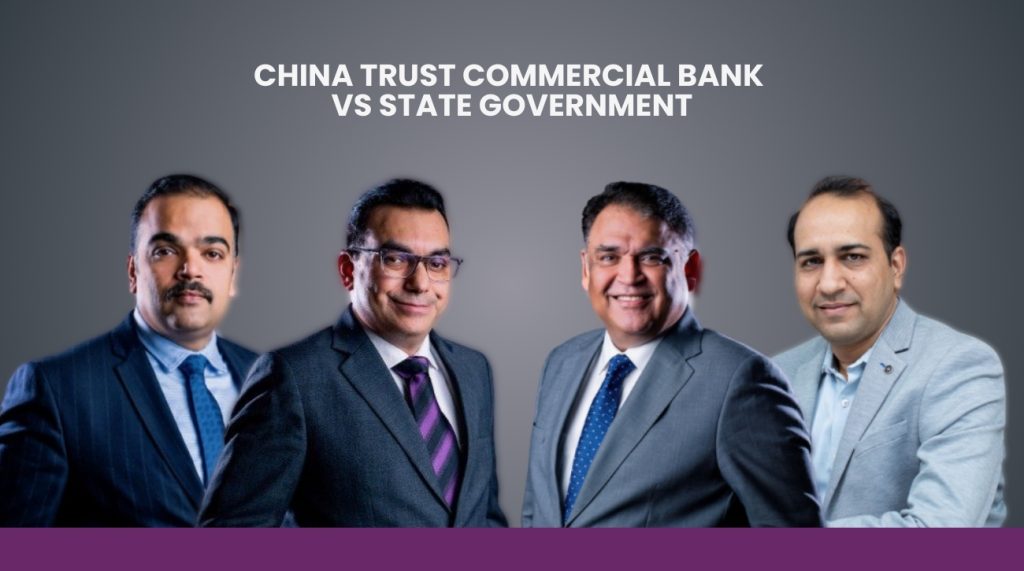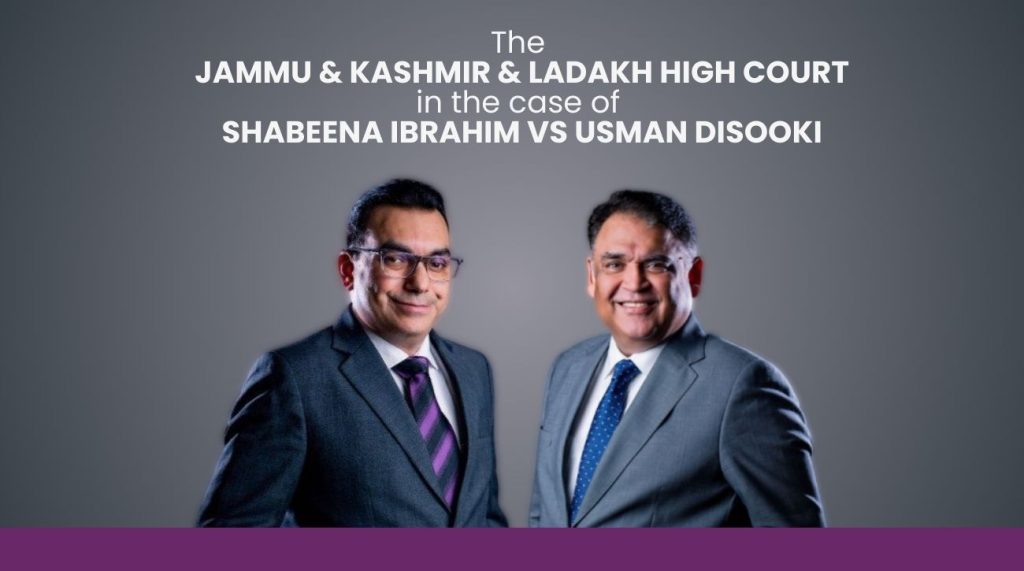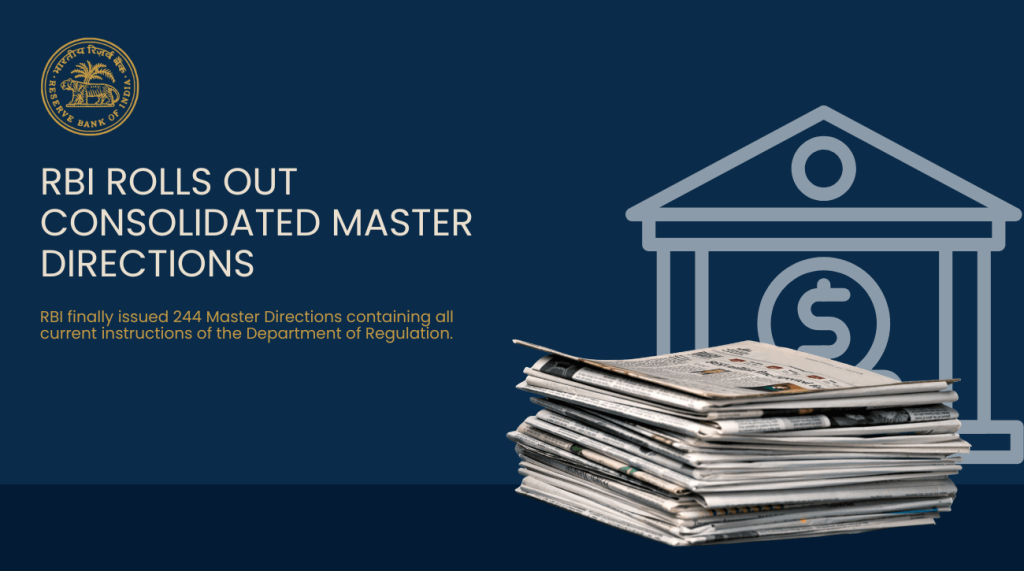Legal Updates (Sept 29 – Oct 4, 2025)
Case Updates:
Cash loans above ₹20,000, though attracting a penalty under Section 269SS of the Income Tax Act, remain legally enforceable under the Negotiable Instruments Act
The Supreme Court in the case of Sanjabij Tari vs Kishore S. Borcar [Criminal Appeal No. 1755 of 2010] dated September 25, 2025, has held that once the execution of a cheque is admitted, presumptions under Sections 118 and 139 of the Negotiable Instruments Act, 1881, arise that it was issued for consideration and in discharge of a debt. These presumptions can be rebutted only by credible evidence, not mere conjecture. The accused had neither replied to the statutory notice nor produced independent material to support his defence, and the complainant had sufficiently explained the source of funds.
The Apex Court clarified that cash loans above ₹20,000, though attracting a penalty under Section 269SS of the Income Tax Act, remain legally enforceable under the Negotiable Instruments Act, rejecting the contrary view taken by the Kerala High Court in P.C. Hari v. Shine Varghese [2025 SCC OnLine Ker 5535], and described that the defence that a blank cheque was given only to secure a bank loan, was absurd.
The Apex Court also revisited its guidelines for compounding offences under the Negotiable Instruments Act, originally framed in the case of Damodar S. Prabhu vs. Sayed Babalal [(2010) 5 SCC 663], to account for the large backlog of cheque-bouncing cases and reduced interest rates. The Court also held that if the accused pays the cheque amount before recording of defence evidence, compounding may be allowed without costs.
Further, taking judicial notice of the staggering pendency of over 6.5 lakh cheque cases in Delhi alone, the Apex Court framed comprehensive directions effective November 1, 2025, to expedite Section 138 proceedings, which are as follows:
- Multi-mode service of summons, including dasti service and electronic means (email/WhatsApp), with affidavit verification.
- Mandatory affidavit of service by the complainant, with penalties for false statements.
- QR code/UPI payment links to be provided in summons, enabling direct online payment of cheque amounts to facilitate early settlement.
- Every complaint is to include a synopsis detailing parties, cheque particulars, cause of action, statutory notice, relief sought, and details of pending cases between the same parties.
- No requirement of pre-cognisance summons under Section 223 of the Bharatiya Nagarik Suraksha Sanhita (BNSS) for NI Act complaints.
- Proceedings ordinarily to remain summary trials, with courts required to record reasons for conversion to summons trials.
- Trial courts to exercise power under Section 143A NI Act for early interim deposit of the cheque amount.
- Post-summons hearings to be held in physical courts to encourage settlement; digital courts may handle pre-summons stages.
No offence of cheating can be attributed to an intermediary/ facilitator, who is not responsible for the actions of subscribers on the platform, like matrimony websites
The Allahabad High Court in the case of Anupam Mittal vs State of UP [Criminal Miscellaneous Writ Petition No. 8702 of 2023] dated September 26, 2025, has held that Shaadi.com functions as an intermediary under the Information Technology Act, 2000, and its CEO cannot be held liable for the independent actions of users. The High Court found that the FIR stemmed from a complaint where a subscriber was allegedly blackmailed by another user, but no dishonest intention or active role was attributed to the CEO. Hence, the Court quashed the FIR lodged by a customer against Shaadi.com CEO, Anupam Mittal, in an alleged cheating case on the grounds that he did not commit any offence in his personal capacity.
In this case, the informant, a lawyer, had paid for services on shaadi.com. It is his case that he was being harassed and blackmailed by one Monika Gupta, who had allegedly recorded the informant’s obscene videos. In the FIR, he stated that despite complaints on the customer care and in personal capacity to the CEO, no action was being taken to remove profiles of those who were indulging in obscenity, no action was being taken.
The High Court, however, observed that the CEO of the matrimonial company could not be alleged to have committed any offence in his personal capacity. Also, the informant who was aggrieved by the acts of the participants on the platform was not harassed on his personal social media pages. Relying on Section 79 of the Information Technology Act and the judgment of the Apex Court in Google India Private Limited vs. Visaka Industries [(2020) 4 SCC 162], the Court held that the petitioner was an intermediary/ facilitator, who was not responsible for the actions of third parties on the platform, and no liability could be imposed on him.
After the date of commencement of insolvency, claims that are not made a part of the Resolution Plan are not arbitrable
The Delhi High Court in the case of JSW Ispat Special Products Limited v Bharat Petroresources Limited [O.M.P. (COMM) 533/2024] dated September 11, 2025, has held that claims that are not a part of the Resolution Plan on the date of approval shall stand extinguished and no person will be entitled to arbitrate such claims. Essentially, post-insolvency commencement date claims that are not made a part of the Resolution Plan are not arbitrable.
The High Court considered the issue of incorrect disclosure by the Arbitrator and noted that the requirement of disclosure in writing in the format specified in the Sixth Schedule was mandatory. Referring to the judgment of HRD Corporation v GAIL (India) Limited (2018) 12 SCC 471, the Court reiterated that merely because an Arbitrator has rendered an award in a previous arbitration between the same parties, per se will not be a ground of ineligibility, in the absence of something more which makes the person inherently ineligible to be an Arbitrator, in the subsequent arbitration.
The Court also observed that it was an undisputed fact that all claims related to the period post-insolvency commencement date were not collated by the resolution professional. Since in the instant case, the claims which were referred to arbitration were not part of the approved Resolution Plan and stood extinguished and were thus not arbitrable.
NCLT lacks the authority to adjudicate upon an order issued by the adjudicating authority under PMLA or to direct the Enforcement Directorate to release the attachment
The NCLT, New Delhi, in the case of Vikram Kumar vs Directorate of Enforcement [I.A. NO. 4373 OF 202 & I.A. 5680 OF 2023] dated September 02, 2025, has held that the NCLT lacks the authority to adjudicate upon an order issued by the adjudicating authority under PMLA or to direct the Enforcement Directorate (ED) to release the attachment.
The Adjudicating Authority observed that the object of the PMLA is to prevent money laundering and to confiscate “proceeds of crime,” and the de-attachment, if allowed, would trench upon the jurisdiction of the PMLA. Therefore, the NCLT lacks jurisdiction to interfere with this.
The NCLT discussed the rulings of Embassy Property Developments Pvt Ltd [(2019) 11 SCC 1] and Kiran Shah vs. Enforcement Directorate [2022 SCC OnLine NCLAT 2], wherein it was held that the NCLT cannot adjudicate upon matters falling outside the scope of IBC and within the exclusive domain of authorities constituted under any other legislation. Therefore, the appellant can only approach the adjudicating authority under the PMLA, before whom the matter is pending.
Moratorium u/s 14 of the IBC doesn’t prevent the reversal of funds mistakenly transferred to the corporate debtor’s account
The NCLT, New Delhi, in the case of B. A. Chandrasherkara Setty vs Intec India Limited [IA 625/2024 IN Company Petition No. (IB) – 2432/(PB)/2019] dated September 04, 2025, has held that the moratorium under section 14 of the IBC doesn’t prevent reversal of funds mistakenly transferred to the corporate debtor’s account. The adjudicating authority held so, while allowing the claim of the applicant that it had mistakenly transferred the ‘relevant funds’ through RTGS, and had sent an email to the bank officials seeking reversal of the funds transferred.
The NCLT observed that the amount was wrongfully credited into the account of the corporate debtor and could not be considered as the asset of the corporate debtor. Essentially, it was held that it cannot be the intention of the legislature to impose a blanket ban on any type of operation of the bank account of the corporate debtor just because a moratorium has been imposed.
The NCLT further observed that neither the corporate debtor nor any other person can claim the amount inadvertently credited to the respondent’s account, and the moratorium cannot be said to have any effect on the money that belongs to an outsider and not to the financial creditor or any other stakeholder. Thus, the question of lifting the moratorium does not arise. Accordingly, it directed that the ‘relevant funds’ should immediately be recredited to the account of the rightful beneficiary or to the transferor.
Institution of criminal proceedings or allegations of fraud against officials of the financial creditor do not bar an application under section 7 of the IBC
The NCLT, Cuttack, in the case of Canara Bank vs S.S. Aluminium Pvt Ltd [CP (IB) No 18/CB/2O24] dated September 09, 2025, has held that institution of criminal proceedings or allegations of fraud against officials of the financial creditor do not bar an application under section 7 of the IBC. The Tribunal therefore rejected the arguments of the Respondent regarding fraud and held that the institution of criminal proceedings or fraud allegations against the officials of the Financial Creditor cannot bar an application under section 7 of the IBC.
The NCLT further observed that, unlike an application under section 9 of the IBC, the petition under section 7 cannot be rejected over a pre-existing dispute. In the present case, acknowledgements of debt through one-time settlement (OTS) proposals, restructuring agreements, and the balance sheet of the corporate debtor extended the period of limitation under section 18 of the Limitation Act. Further, the defaults in the present case occurred subsequent to the period of prohibition under Section 10A of the IBC, as evidenced by loan account statements and NeSL records.
Inadequate stamping of loan documents does not bar the admission of a petition under Section 7 of the IBC
The NCLT, Mumbai, in the case of Pegasus Assets Reconstruction Pvt Ltd vs Dee Plone Polyster Pvt Ltd [CP (IB) No. 141/MB/2024] dated September 02, 2025, has held that inadequate stamping of loan documents does not bar the admission of a petition under section 7 of the IBC.
The NCLT rejected the submission with respect to inadequate stamping and non-furnishing of electronic certificates under section 65B on the ground that these defects were curable in nature and did not affect the maintainability of the petition under section 7 of the IBC.
Relying on the Supreme Court’s decision in the case of judgment in N.N. Global Mercantile vs Indo Unique Flame [Civil Appeal No(S). 3802-3803 of 2020], where it was held that inadequate stamping is a curable defect, the NCLT held that the corporate debtor’s acknowledgement in the financial statements and communications extended the limitation period under section 18 of the Limitation Act.
Regulatory Updates: SEBI & RBI
SEBI Announces Digital Accessibility Rules for Regulated Entities to Foster a More Equitable Digital Ecosystem
The Securities and Exchange Board of India (SEBI) vide its Circular No. SEBI/HO/ITD-1/ITD_VIAP/P/CIR/2025/131 dated September 25, 2025, has released Compliance Guidelines for Digital Accessibility in continuation of its circular dated July 31, 2025. These guidelines are framed under the provisions of the Rights of Persons with Disabilities (RPwD) Act, 2016, and the rules made thereunder. The initiative marks a significant step towards making digital platforms inclusive and accessible for all, especially persons with disabilities.
Under the new framework, all Regulated Entities (REs) are required to identify and report the list of their digital platforms being used to deliver services or provide disclosures. This includes websites, mobile applications, portals, and any other digital interfaces used to engage with investors or the public.
Further, to oversee compliance, entities must appoint IAAP-certified accessibility professionals as auditors. These professionals are responsible for conducting independent accessibility audits of digital platforms to ensure that they adhere to global best practices in accessibility and user experience.
As far as audit, remediation, and reporting are concerned, the SEBI guidelines mandate that regulated entities conduct regular accessibility audits, identify shortcomings, and implement remediation measures to address audit findings. Entities are also required to provide annual compliance reports to SEBI within the prescribed timelines, using the specified reporting mechanism.
Click here to read the original circular
RBI Eases EDPMS/IDPMS Rules for Small-Value Trade Bills
The Reserve Bank of India (RBI) vide its A.P. (DIR Series) Circular RBI/2025-26/89 A.P. (DIR Series) Circular No. 12 dated October 01, 2025, has simplified the closure of entries in the Export Data Processing and Monitoring System (EDPMS) and Import Data Processing and Monitoring System (IDPMS), specifically targeting small-value transactions.
Effective immediately, the new procedure allows Authorised Dealer (AD) Category-I Banks to reconcile and close export and import entries valued at ₹10 lakh per entry/bill or less based solely on a declaration provided by the concerned exporter or importer. The exporter must declare that the amount has been realized, and the importer must declare that the amount has been paid.
The RBI also permits banks to accept any reduction in the declared or invoice value for these bills based on the same self-declaration. To facilitate bulk reconciliation, these declarations can be received quarterly in a consolidated manner.
Furthermore, the RBI has instructed AD banks to review the charges levied for handling these small-value transactions, ensuring they are commensurate with the reduced services required under the new, relaxed procedure. Critically, banks are prohibited from levying any penal charges for delays in adhering to regulatory guidelines.
Click here to read the original circular
SEBI Extends Algo Trading Implementation Timeline till April 2026
The Securities and Exchange Board of India (SEBI) vide its Circular No. SEBI/HO/MIRSD/MIRSD-PoD/P/CIR/2025/132 dated September 30, 2025, has further extended the timeline for the complete implementation of its framework for the safer participation of retail investors in algorithmic (Algo) trading, originally mandated by the February 2025 circular.
While stock brokers ready with the necessary systems may proceed with implementation starting October 1, 2025, a glide path has been introduced for those needing more time due to recent clarifications in operational modalities.
This path sets out three key milestones: (i) registration applications for retail algo products and at least one strategy must be submitted by October 31, 2025 (Milestone 1); (ii) registration completion by November 30, 2025 (Milestone 2); and (iii) mandatory participation in a mock session with the new functionality by January 3, 2026 (Milestone 3).
Stock brokers failing to meet these milestones will be barred from onboarding new retail clients for API-based algo trading from January 5, 2026. The full implementation of the new algo framework will be mandatory for all stock brokers starting April 1, 2026.
Click here to read the original notification
Non-residents allowed to invest in corporate debt from Special Rupee Vostro Accounts
The Reserve Bank of India vide its Circular No. RBI/2025-26/90 dated October 03, 2025, has allowed persons resident outside India holding Special Rupee Vostro Accounts (SRVAs) to invest their surplus rupee balances in corporate debt instruments. Previously, such investments were restricted to government securities
SRVA holders can now invest in non-convertible debentures (NCDs), bonds, and commercial papers issued by Indian companies, RBI said in a circular issued to Authorised Dealer Category-I banks.
The move will increase participation in the corporate bond market and make SRVAs attractive, as they could fetch higher returns. The SRVA mechanism was introduced by the RBI in July 2022 to facilitate the settlement of international trade transactions in Indian rupees.
Under the revised norms, Investments in corporate debt will be counted under the General Route limit for foreign portfolio investors (FPIs). Minimum residual maturity and issue-wise limits applicable to FPIs will not apply to SRVA-based investments.
Click here to read the original notification



